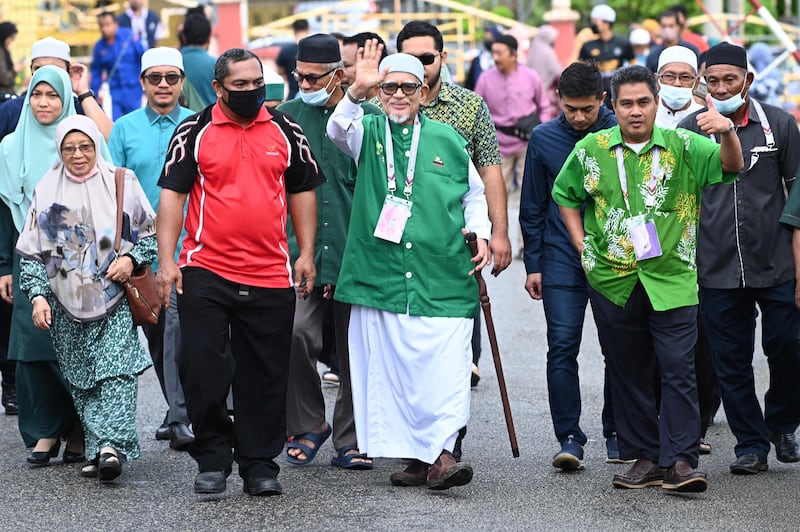This year’s G20 summit, held in Bali, Indonesia, featured a first: the G20 Religious Forum, or R20, organised by two of the world's largest Islamic non-governmental organisations, the Muslim World League based in Makkah, and Indonesia’s up to 90-million-strong Nahdlatul Ulama. As well as the leaders of those two groups, speakers included a Catholic cardinal, the secretary general of the Protestant World Evangelical Alliance, and high-level representatives of Hinduism, Shintoism, Judaism and the Chaldean Catholic Church in Iraq.
The R20 communique called for religious and political leaders “to join in building a global alliance founded upon shared civilisational values” and the launch was announced of the East-West Bridge Building Initiative – a new NGO “designed to use religious diplomacy to build bridges between diverse groups around the world”.
This Islamic-led event was fitting for South-East Asia, a region with a Muslim population of about 240 million people, but which also contains hundreds of millions of Buddhists, Hindus, Christians, Taoists and others, and is guided by the principle of “unity in diversity” – the national motto of the R20’s host country, Indonesia, and a frequently cited phrase in Malaysia, the other main Muslim-majority country in the region.
This was reinforced in the latter by the recent formation of a national unity government under Prime Minister Anwar Ibrahim. More than half of his cabinet are Muslim Malays, but the rest are made up of Chinese, Indian and indigenous ethnic groups from the Borneo states of Sabah and Sarawak. With the country’s chief Sharia judge taking up the position of religious affairs minister, the line-up underlines the long-standing view of successive Malaysian governments that there is no contradiction between being a devoted Muslim and being tolerant of others. On the surface, all seems to match up with the much-vaunted claim that moderation is a way of life in the region.
But even as states in another area home to hundreds of millions of Muslims – the Arabian Gulf – are becoming more open and progressive, while being careful to preserve their Islamic culture, values, traditions and laws, there is an emerging tide in the other direction in Indonesia and Malaysia. In the latter, there was a huge vote swing to the Islamist party PAS in last month’s general election. The party won the largest number of seats – 49 – in the country’s 222-seat parliament, and in the negotiations that followed, since no one had a majority, a federal government dominated by PAS was a real possibility.
Most Malaysians, for whom worries about the cost of living and the impact of severe flooding during the current monsoon are their main concerns, will be very glad that did not happen. Where PAS is in power, in the state of Terengganu, it has in the past few days shown its priorities for the 21st century by introducing fines for hair salons that allow customers of both sexes and legislation to make sorcery, an evil with which the country is hardly plagued, a criminal offence.
Of course there is nothing wrong with people having conservative views on religion or morality, but in the past compromises were always made in the interests of diversity and national unity. In Malaysia, Sharia, mainly to do with family matters, applies only to Muslims, and not to the 36 per cent of the population who are not. In Indonesia, Aceh province is the only local government allowed to enforce Islamic criminal law as it was granted special autonomy as part of an agreement to end an insurgency. The constitution guarantees “all persons the right to worship according to their own religion or belief”, and while the country’s guiding philosophy, Pancasila, includes “belief in the divinity of God”, it does not specify a particular religion.

The demand that the rules of one community should be the rules for all is not new, but it is being articulated far more noisily and angrily now, and the chances that those demands will be translated into legislative action are far higher than in the past. This is a threat to pluralism and stability – as Malaysia’s nine hereditary rulers, who are heads of Islam in their states, recognised when they issued a statement last week urging all to “cease and desist” racial and religious incitement, and instil the “spirit of togetherness” among Malaysians instead.
Perhaps some have been complacent about this rising tide of religious conservatism and, far more worryingly, intolerance, because the changes have been incremental over many decades. In Indonesia, there was no place in politics for such sentiments under the 30-year rule of Gen Suharto. Within three months of his resignation in 1998, however, 42 Islamist parties had been formed. In Malaysia, many date the beginning of this trend to then prime minister Mahathir Mohamad’s taking on a young Islamist firebrand as his protege in 1982. Mr Anwar rapidly scaled the ministerial ranks, becoming deputy prime minister until falling out with his mentor in 1998.
Today a much-changed Mr Anwar is Prime Minister, and Indonesian President Joko Widodo, also considered a reformer, was one of the first to call to congratulate him. But protecting the pluralism so cherished by their countries is a challenge for both Muslim leaders. One solution may be that, just as some allege that in the past, the trend towards religious conservatism owed much to Middle East-funded dakwa – missionary – activities, South-East Asia should consider today the example of a Gulf that is forging a path where religion and modernity not only co-exist but complement each other.
Hand in hand, instead of turning to Islamism, their peoples could then unite to realise the aims of the Muslim-led R20, and of “unity in diversity”, so that, as the Grand Imam of Jakarta’s Istiqlal Mosque, Nasaruddin Umar, said at the gathering: “The perspective that considers there are enemies around us must be changed into that there are friends around us.”





